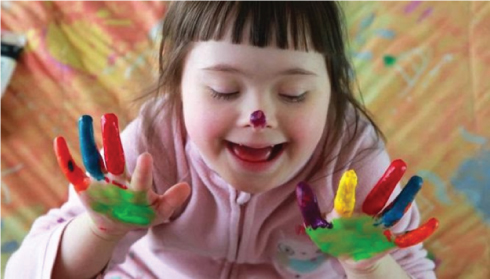
- Homepage
- About Us
- Programmes & Services
- Admissions
- News & events
- Blog
- Contact Us
Posted on 10-02-2021 by admin

Here are more details on the IEP that you need to know as a parent/guardian of a child who is going to receive special education:
The IEP has two general purposes:
The IEP is developed by a team of individuals that includes Saint Clare’s key school staff and the child’s parents. The team meets, reviews the assessment information available about the child, and designs an educational program to address the child’s educational needs that result from his or her disability.
An IEP meeting must be held within 30 calendar days after it is determined, through a full and individual evaluation, that a child has one of the disabilities listed in Individuals with Disabilities Education Act (IDEA) and needs special education and related services. A child’s IEP must also be reviewed at least annually thereafter to determine whether the annual goals are being achieved and must be revised as appropriate.
Each child’s IEP requires specific information, as listed within IDEA, our nation’s special education law. The IEP requirements include (but is not limited to):
Yes, they certainly can be! IDEA actually requires that the student be invited to any IEP meeting where transition services will be discussed. These are services designed to help the student plan for his or her transition to adulthood and life after high school.
Here’s the step by step IEP timeline process for your guideline:
Someone, usually your child’s teacher or another school professional, suspects your child may have a learning disability or need extra services, such as speech pathology or occupational therapy. Your child is then referred to us for an evaluation, and you will be asked to give parental consent. As a parent, if you suspect your child may need additional help, you have the right to request an evaluation as well.
Our members of the evaluation team differ according to your child’s special needs. The team leader will be our school Principal and our staff whose expertise is required in assessing your child. If you disagree with an evaluation, you have the right to request an Independent Education Evaluation (IEE), and to ask the school district to pay for it. Your child’s IEP coordinator should tell you about this and the other rights you have as a parent throughout the process.
Once all of the evaluations have taken place, the team members write their reports and determine together whether your child qualifies for services. According to the Individuals with Disabilities Education Act (IDEA), in order to be eligible for special education or related services, your child must be determined to be a “child with a disability” — which can mean anything from an articulation issue to ADD to a hearing impairment and many others. If your child isn’t found eligible for services and you disagree, it’s your right to challenge the decision.
The IEP meeting is scheduled by Saint Clare and we will contact you well in advance and attempt to accommodate your schedule. On the call, the coordinator is required to list the meeting’s attendees and invite you to bring anyone you feel would be an advocate for your child, such as a teacher or therapist.
At the meeting, your child’s IEP will be written, including the specific services he’ll receive, how many times per week and for how many minutes he’ll get them, and whether they’ll be one-on-one or with a group. If you disagree with the IEP, you have the right to request a due process hearing and mediation.
Once the IEP is written, Saint Clare will be responsible for making sure it’s followed. Her teacher, service providers, and you will all be given copies of the IEP. Often, you’ll meet together at the beginning of the academic year with the school’s IEP coordinator to discuss how the program will be carried out.
As often as your child’s report cards are sent out, you should receive official IEP progress reports, though usually you’ll be given less formal updates on a more frequent basis. At least once a year, the IEP will be reviewed. At the meeting you can request changes or make suggestions, and if you disagree with the results, you can ask for additional evaluations or a hearing and mediation.
Kids with IEPs have to be reevaluated every three years to determine whether they’re still eligible for services. If you as a parent or guardian requests it, however, reevaluations can be done sooner or more often.
Do you suspect that your child may require special education? If so, get in touch with us by filling in this Questionnaire Form and give us as much information as possible. Our representative will get in touch with you the soonest to schedule a meeting with you and your child.